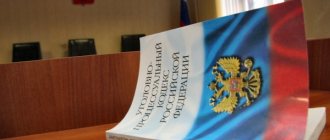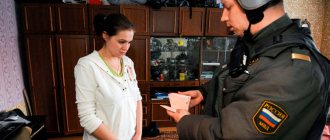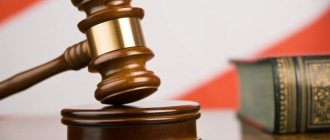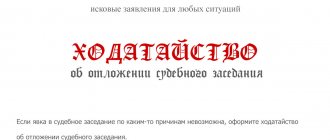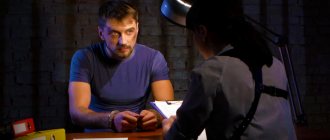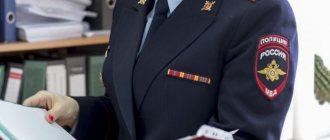Unfortunately, participation in criminal proceedings is not always safe for witnesses, victims, private prosecutors, civil plaintiffs, and other subjects. Suspects, accused, as well as persons close to them, wishing to avoid responsibility for their actions or obsessed with the idea of revenge, can threaten the health and life of participants in criminal proceedings and their relatives, thereby significantly influencing the course of the process. To prevent this from happening, secrecy is used - a security measure aimed at hiding data about some participants in the criminal process.
So, in what cases is classified information used? To answer this question, let us turn to a special act - 119-FZ of August 20, 2011. Article 16 of this law states that the basis for classifying information about participants in criminal proceedings is a real threat to their life and health, as well as the risk of destruction or damage to property belonging to them. Most often, a threat is evidenced by letters, messages, calls of relevant content, as well as cases of attack and damage to property. The full list of persons subject to classification is given in Article 2 of the Law in question.
The security measure applies:
- on the basis of a written application of an individual and (or) a written application of his relatives;
- on the initiative of the investigator with the consent of the individual and (or) his relatives.
A resolution on keeping personal information secret, including information about the individual’s full name, date and place of birth, is placed in an opaque envelope, sealed, and in this form is attached to the materials of the criminal case. Only the entity that classified the person, as well as the justice authority, are allowed to open the envelope.
Classification includes not only changing personal information, but also changing the telephone number, license plate number on a car belonging to the protected person. Government organizations are prohibited from providing true information about the subject to other persons.
If this is not enough, law enforcement agencies may resort to more radical protective measures, for example, relocating individuals to another region, changing their place of work (study), and even changing their appearance.
In addition to the above-mentioned law, issues of safety of participants in criminal proceedings are regulated by the Code of Criminal Procedure of the Russian Federation, according to Article 11 of which, if there is sufficient evidence that the victim, witness or other participants in criminal proceedings, as well as their close relatives, relatives or close persons are threatened with murder, violence, destruction or damage to their property or other dangerous illegal acts, the court, prosecutor, head of the investigative body, investigator, inquiry body, head of the inquiry body, head of the inquiry unit and the investigator take, within the limits of their competence, security measures in relation to these persons.
Thus, the Code of Criminal Procedure of the Russian Federation provides for the following security measures:
- classification of personal data in the protocol of investigative actions in accordance with clause 9 of Art. 166 Code of Criminal Procedure of the Russian Federation;
- control and recording of telephone conversations of persons in respect of whom there is a threat of committing criminal acts, based on the application of these persons, and in the absence of an application, on the basis of a court decision;
- conducting identification in conditions that exclude visual observation of the identifier by the identifiable, in order to ensure the safety of the identifier;
- holding a closed court hearing in cases where this is required by the interests of ensuring the safety of participants in the trial, their close relatives, relatives or close persons.
- interrogation of a witness in court without disclosing true information about his identity in conditions that exclude visual observation of the witness by other participants in the trial.
What do you need to know?
So, this means that a witness is considered to be a person who knows some of the circumstances of what happened and is summoned to testify to the investigator, interrogating officer or to the court. Thus, a citizen can be invited for questioning in order to convey information to an official not only when he actually has some information, but even if the law enforcement officer has a reasonable assumption that the latter knows something about the crime committed.
It should also be noted that any person can be a witness, regardless of his social status or other circumstances related to his personality. However, the law contains a list of those persons who cannot be called as witnesses either by the police or in court.
Additionally
Most citizens know that husbands and wives of accused or suspects are not subject to questioning as witnesses if their marriage is formalized in the established legal manner (by the registry office). The latter are endowed with a certain immunity. But should people whose marriage is not registered testify against their spouses? According to the law, cohabitants are not close relatives. This means that if one of them is under investigation, the “civilian” husband or wife will not be able to refuse to testify. Otherwise, they face criminal liability. You definitely need to know this.
What should I do if I receive a summons?
The law provides an exhaustive list of those persons who cannot be witnesses in the case. Therefore, if the suspect’s lawyer or the clergyman of the church in which the alleged attacker confessed, as well as an official from the tax office, where the accused transmitted information, receive a summons to appear before the investigator, then they have every right to come to the procedural conversation, but immediately refuse to give any information. - any indications.
In addition, the police officer himself must remember that by calling these persons as eyewitnesses of what happened, he violates the norms of the current law. After all, despite the fact that any person can be a witness, regardless of his social status or financial situation, the Code of Criminal Procedure provides for a certain list of persons who do not participate in the procedural conversation as witnesses. This rule applies to both judges and juries.
Moreover, persons who have such witness immunity can file a complaint against the actions of the investigator to his supervisor, as well as to the prosecutor's office or to a judicial authority.
A comment
The list of those persons who are not subject to questioning as witnesses is recorded in Art. 56 Code of Criminal Procedure of the Russian Federation. I can only agree with her comments. After all, judges, jurors, defenders of suspects, lawyers cannot be witnesses. Because by the nature of their activities, they have information that became known to them during the investigation and consideration of the case in court.
In turn, the investigator involved in uncovering the crime cannot force these individuals to testify. After all, according to the law, they have witness immunity.
What is the danger of a witness failing to appear in court in a criminal case?
None of them has the right not to appear at the meeting, the time of which is set in advance. The witness should also be in the courtroom, because he plays an important role in the case and can even direct the investigation in a different direction. Let's consider what can happen if a person does not appear at the trial. When a person's testimony is significant, the case may be postponed to another date. In other cases, they have the right to continue the trial even if the summoned witness is absent. As a rule, testimony is not made public in his absence. But if the citizen has failed to appear many times, the prosecutor will have the opportunity to ask for previous evidence to be read out. In this case, there will be a reference to extraordinary circumstances. However, the final decision on this point is made by the judge.
Important! The defense may object and disagree with the prosecutor's opinion. Because disclosing testimony without the person himself is a gross violation.
Law enforcement agencies may believe that the failure to appear occurred because the person has something to hide. This means that representatives of the law will be more interested in the citizen. That is why it is better not to hide from court proceedings and remember the duties and rights of a witness. Then the participant in the case will not have any problems, and he will only be required to give testimony.
In practice
The testimony of witnesses in a criminal case is critical. Moreover, as mentioned earlier, they are considered one of the main evidence in the process. It should also be noted here that in the practical activities of law enforcement agencies, witnesses are often children who give evidence to the investigator in the presence of a psychologist, teacher or their parents. It is also possible to interrogate persons who have any physical disabilities as eyewitnesses to the incident. However, the court may doubt the testimony of these persons. After all, a deaf-mute person or a person suffering from schizophrenia cannot always correctly assess what is happening. Therefore, often such people undergo an examination in a special medical institution before giving testimony.
